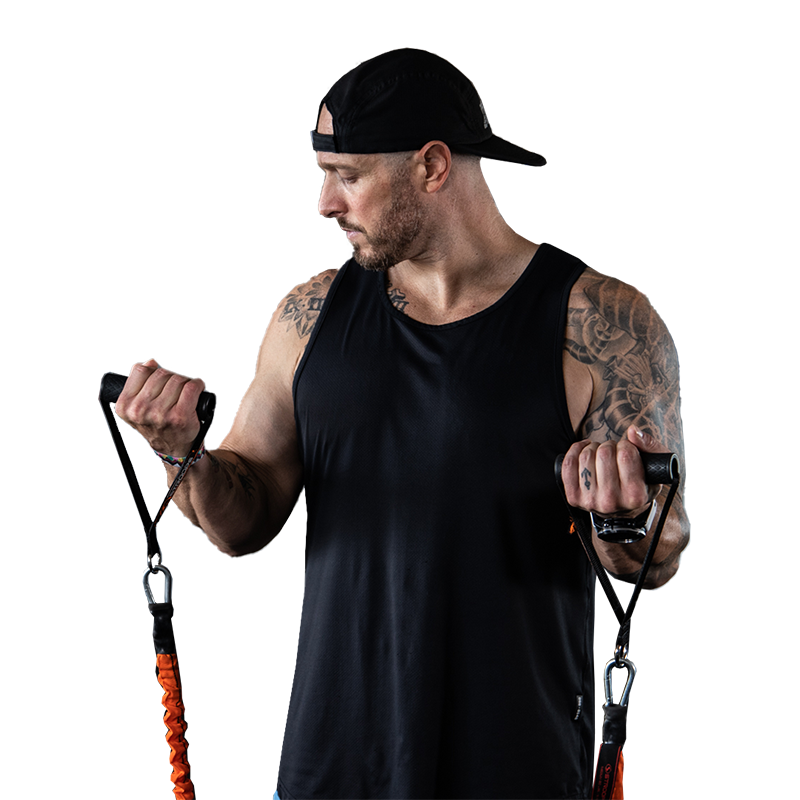When it comes to achieving your fitness goals, your workout routine is just one piece of the puzzle. Nutrition plays an equally vital role, especially when it comes to building strength and enhancing mobility.
In this blog post, we'll explore the significance of nutrition for strength and mobility and provide practical tips to fuel your fitness journey effectively.
The Foundation of Strength and Mobility
Think of your body as a well-tuned machine. To perform at its best, it requires the right fuel. Strength training and mobility work are demanding on your muscles and joints, and they need the proper nutrients to repair, recover, and adapt.
Different foods and supplements to your diet will affect your fitness level in different ways. Therefore, it's important to diversify your diet enough that you can enjoy the benefits of complete nutrition that will positively impact your performance.
Protein: The Building Block of Muscle
Protein is often called the building block of muscle, and for a good reason. When you engage in strength training, you create micro-tears in your muscle fibers. Protein is essential for repairing these tears, making your muscles stronger and more resilient. Incorporate lean sources of protein into your diet, such as chicken, turkey, fish, lean beef, tofu, beans, and lentils.
Another form of protein intake for many athletes comes down to different types of drink and shakes. The most commonly found form of protein supplement is whey protein, which contains a high amount of amino acids and is easy to absorb.
Other forms of protein include egg protein, casein, and plant-based protein. These forms are often less plentiful or complete in amino acid content but are beneficial for users that have dietary restrictions against dairy or other things.
Carbohydrates: Your Energy Source
Carbohydrates are your body's primary energy source, and they're crucial for both strength and mobility workouts. Complex carbohydrates like whole grains, oats, quinoa, and brown rice provide a steady release of energy to keep you going during intense training sessions. They also help replenish glycogen stores in your muscles, aiding in post-workout recovery.
Fats: The Unsung Heroes
Healthy fats, such as avocados, nuts, seeds, and olive oil, are often overlooked but are essential for overall health and mobility. Omega-3 fatty acids, in particular, play a crucial role in reducing inflammation, which can help with joint health and mobility. Incorporate these fats into your diet to support your fitness journey.
Hydration: Often Neglected
Don't underestimate the importance of staying hydrated. Proper hydration is essential for muscle function and joint lubrication. Dehydration can lead to muscle cramps and decreased joint mobility, hindering your workouts. Aim to drink enough water throughout the day, and consider adding electrolyte-rich beverages like coconut water to replenish lost minerals during intense training.
Micronutrients: The Little Giants
Vitamins and minerals, often referred to as micronutrients, are vital for overall health and well-being. Specific nutrients like vitamin D, calcium, magnesium, and potassium play significant roles in muscle function, bone health, and mobility. Ensure your diet includes a variety of fruits and vegetables to obtain these essential micronutrients.
Eating for Recovery
Post-workout nutrition is just as critical as pre-workout fueling. After an intense strength or mobility session, your body needs nutrients to repair and recover. A combination of carbohydrates and protein, ideally in a 3:1 ratio, can aid in muscle recovery. A smoothie with whey protein and fruit or a turkey and vegetable wrap on whole-grain bread are excellent post-workout choices.
Supplements: Use Wisely
While it's best to get your nutrients from whole foods, supplements can sometimes be necessary, especially if you have specific dietary restrictions or deficiencies. Consult with a healthcare provider or nutritionist to determine if supplements like protein powder, omega-3 capsules, or vitamin D supplements are appropriate for your needs.
Wrapping It Up
In the pursuit of improved strength and mobility, don't underestimate the power of nutrition. What you eat directly impacts your body's ability to perform, recover, and adapt. Focus on a well-balanced diet that includes lean protein, complex carbohydrates, healthy fats, and essential micronutrients. Remember to stay hydrated and prioritize post-workout nutrition for optimal recovery.
By fueling your body wisely, you're setting the stage for success in your fitness journey, both in building strength and enhancing mobility.
For more tips on your fitness journey, follow our blog and consider taking advantage of the Stroops line of workout products.

